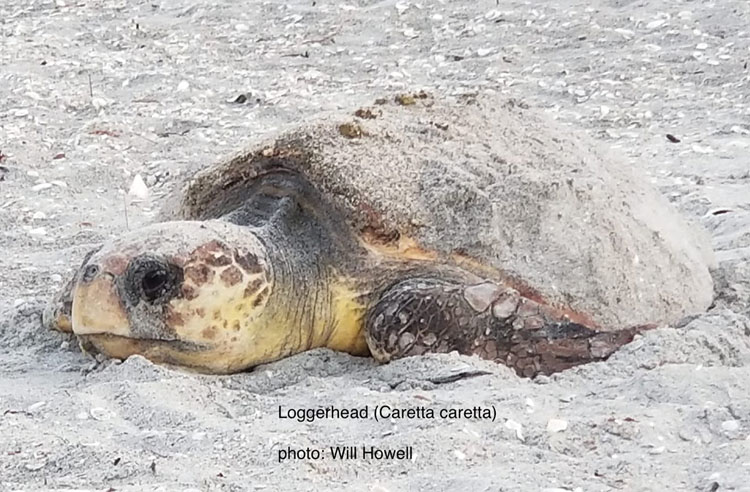Coastal Wildlife Club Volunteers Monitor 2024 Sea Turtle Nesting Season
June 27, 2024 at 11:04 a.m.

Are you following the 2024 sea turtle nesting season? Sea turtle nesting season is exciting, yet serious business for the Coastal Wildlife Club’s sea turtle patrol volunteers. If you frequent the beach in the early morning, you probably have seen these volunteers patrolling their assigned zones each morning to document and collect data on the nesting successes as well as the false crawls (aborted nesting attempts) of the sea turtles that come ashore to lay their eggs during spring and summer in this area. When a successful nest is confirmed, yellow stakes & tape are placed around it to bring awareness to the site and keep people from disturbing the nest by walking over it or placing their beach gear on top of it. 2024 has brought four of the five Florida sea turtle species to nest on Manasota Key: Loggerhead, Green, Kemp’s Ridley and even one Leatherback. Here are the nesting statistics as of June 21st. Loggerhead: 2,660 nests; Green: 20 nests; Kemp’s Ridley: 1 nest; and Leatherback: 1 nest.
The Coastal Wildlife Club offers these steps you can take to give these endangered sea turtles the best odds of successfully nesting. The first nest has already hatched so please take the time to do these things when leaving the beach. Learn more at coastalwildlifeclub.org or follow them on Facebook.
• Keep artificial light from reaching the beach. This includes light from cellphones, fishing lanterns, and flashlights. If you are staying on the beach, pull the drapes or blinds at sunset so no light reaches the beach. Turtles are distracted by artificial light and may wander off the beach to follow the light instead of using the ambient light of the Gulf to return to the water.
• Remove beach furniture and other potential obstructions from the beach and off the sand by sunset. Sea turtles need to move freely and risk becoming entangled or stuck.
• Fill in any holes which may trap both adult sea turtles and their hatchlings. The first nests have hatched so this is even more important as hatchlings may fall into holes and then die or be eaten by predators.
• Pick up all trash on the beach. It attracts predators who may then dig up nests or eat the hatchlings as they emerge.
• If you see a dead or struggling sea turtle, call the Florida Fish & Wildlife Commission (FWC) to initiate the stranding response: 888•404•3922.